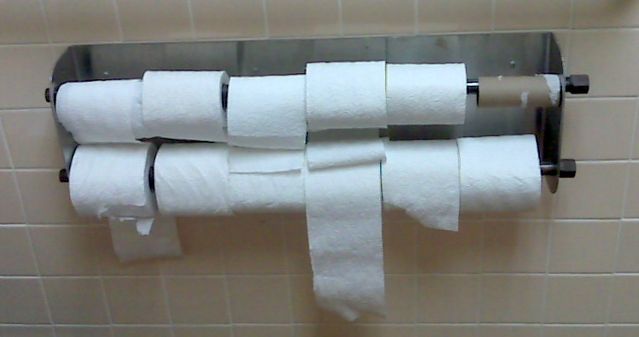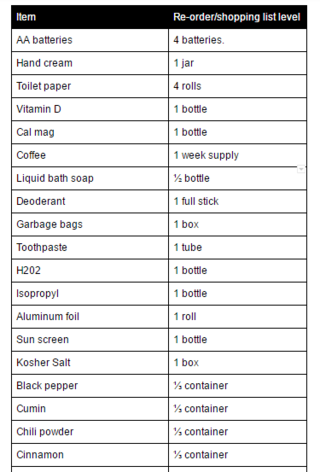Leadership
Toilet Paper, AAA Batteries, and a Clear Mind
Here's how to de-clutter your mind, and never run out of toilet paper again.
Posted November 16, 2016

For years now, I’ve been helping people de-clutter their minds. When I learned how to clear my own mind, it changed the quality of my life for the better immediately, and, since that time, I have wanted to help others to do the same. When our minds are clear, we are more productive, less stressed, happier, less mistake-prone, and generally nicer people. Plus, it’s easy.
In “5 Steps to a Clearer Mind” and “Clear Mind in a Complex World” I describe a procedure for clearing your mind that helps you capture anywhere from just a few to hundreds of random thoughts and worries and get them off your mind.
And I suggested that it’s best to use the Clear Mind Procedure as a reactive technique. In other words, you don’t need to do it every day. It works just fine if you wait until your mind feels distractingly cluttered, and then use it to get undistracted.
But there are times it pays to be proactive, taking a little bit of time to prevent predictable distractions from arising in the first place. For instance, there are many benefits to making sure we don’t run out of things we use all the time.
Running out of toilet paper or batteries sounds like a simple little problem to have, but these simple little problems can demand a surprising amount of our attention over the course of a year. Not only do we have to find a way to deal with the immediate crisis of running out, we also have to remember to buy more of the thing we ran out of when we get a chance. And, if you’re anything like me, you can intend in the morning to pick up more toilet paper after work, and completely forget by the time you’re driving home in the evening.
This goes well beyond toilet paper and batteries. The typical person runs out of dozens of different kinds of items each year. That creates a lot of open loops, and wastes a lot of mental cycles that could be used in better ways.
About a year ago I added the following routine to my week, and, because of the benefits, I’ve been recommending it to others ever since, right alongside the Clear Mind Procedure.
Manage Your Inventory
Every Sunday night I follow the following procedure:
- I take out my inventory management checklist. (It’s actually pinned to a board in my home office)
- I go through each item and determine whether I need more of it.
- If so, I list the item on a shopping list. Each week there might be 2-3 items on this list.
- I order what I can from Amazon right then and there.
- I buy the rest the next day at the grocery store (or wherever).
Here’s what the top half or so of my list looks like:

With this new habit in place, re-stocking non-perishables becomes just a small normal part of my weekly routine that takes almost no time at all. I no longer have to endure the inconvenience of running out of something at the wrong time, and no longer need to remember to pick up more of it, only to forget, then remember again, then forget again, then finally remember to get the item.
And the bottom line is, I have not run out of toilet paper, or any other non-perishable, in over a year. This has helped in the battle for a clear mind, which increases productivity and general happiness.
The only trick is to get yourself to do it. Toward that end, here are some steps to get started:
- Take out a piece of paper, and divide it into two columns.
- Label the first column ‘item’, and the second column ‘re-stock level’
- List as many of the things you might run out of, and determine when you want to stock up again. (For instance, if you get down to your last 4 rolls of toilet paper, then it’s time to get some more.)
- Place this list someplace handy (I pin mine to a cork board in my home office).
- Add new kinds of items as you think of them (at the very least you’ll expand your list as you run out of things.).
- Pick a time each week when you will go through the list and make a shopping list.
- Commit to the new habit.
Combined with the Clear Mind Procedure, this Inventory Management Habit can keep your mind free to do more of the creative things you want it to do.


